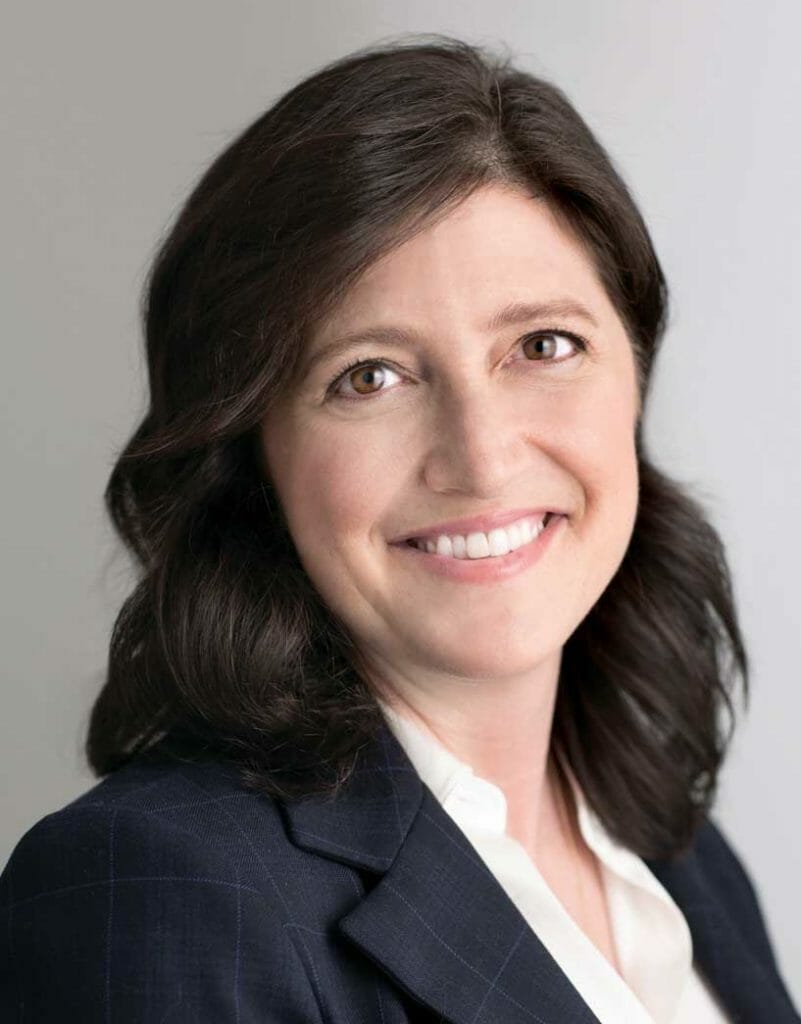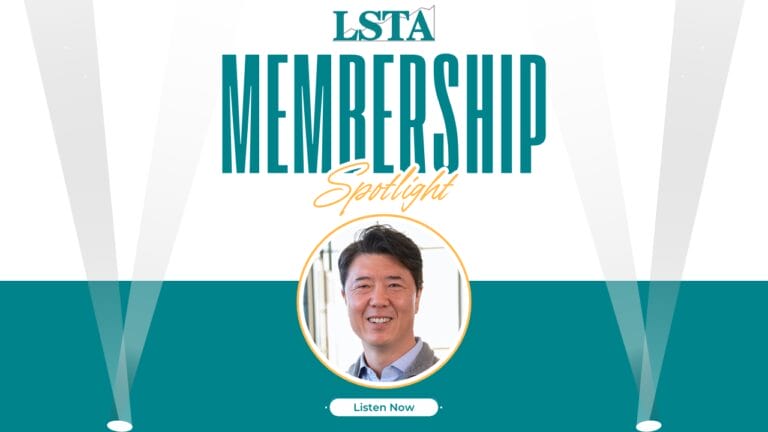August 12, 2024 - This interview, conducted by the LSTA’s EVP of Membership Lisa Schneider, was first published in the 2024 summer edition of Loans Magazine. The following is an edited version of the interview transcript.
Let’s just jump right in… I’m sure that your list of chores is growing as we speak! You had already had such an accomplished and successful career that spanned nearly three decades —
Actually, over three decades. Almost four.
Okay, so you’re proving my point even more – you could have easily retired after ArrowMark – What inspired you to join the LSTA as Executive Director?
Well, first, Bram announced he was retiring so the position became available. I had been on the board for about four years a couple of years prior to his retirement so I knew what was required of the job. Ultimately, there were a couple of things: I really admired what the LSTA did for the industry, and I enjoyed my time on the board, working with the staff and digging into the issues. I enjoyed the conversations and the debates that we had while trying to tackle the issues. Delayed comp became something that we had to resolve. The whole question of trade-away reports was becoming problematic – it was just a bad look for the industry, and ultimately as a board, we concluded that it was a bad practice and should cease. Most notably, we had to address risk retention. I was on the board when we ultimately voted to allow the LSTA to sue the government in the guise of the Fed and the SEC, who were the two principal agencies that pushed the rulemaking under Dodd-Frank to require risk retention for CLOs. So, it was a combination of all those different things and those experiences that really led me to contend for the position and ultimately to be the successful candidate.
You just mentioned risk retention, which is a perfect segue into our next topic – I think everybody can agree that your tenure at the helm was unlike any of your predecessors. You successfully shepherded the market and the LSTA through COVID, the LIBOR transition, Kirschner, Revlon, just to name a few. It felt like during your time here, there was another shoe to drop every other month. Some of which were true existential threats to the market. Are there one or two (or more) of those hurdles that you found particularly challenging and/or rewarding?
Ok, there’s a couple of things to unpack there. First, I was the third executive director of the LSTA and I think each of the former executive directors had challenges in their time and did unique things to help the organization develop and mature. I think Allison Taylor was the right person to start the organization, to get people focused on the need for a private institution made up of a membership of the relevant stakeholders. Bram took the organization to the next level, helped stabilize it financially and then bring it to a point where it could meet some of these many challenges. He ultimately handed off the LSTA in a very strong position.
Looking back at some of these issues, Revlon was probably the most difficult one because we had stakeholders on both sides, not just within our membership, but sitting at the same table at our board meetings. That’s a testament to LSTA’s ability to coalesce support among our stakeholders even when it’s unpopular. We took the stance that we did because we felt that it was the right thing to do and ultimately, that position was supported in the courts.
Kirschner was an existential threat to the loan industry, and it was crystal clear what we had to do as an organization. We put all our efforts into it, lobbied heavily, and worked hard to ensure that the Amici briefs that we filed were beyond excellent, almost as though we were the defendant in the case.
Lastly, COVID was just unprecedented, and I know these words sound so trite, but it was unprecedented. The loan industry, as a part of the overall economy, and the livelihoods of the 20,000+ people that make their daily living from the loan business was in the balance. We felt there was no other way to go forward other than to try to defend the industry and demonstrate that the markets were functioning and that any daily redemptions were being met. We had to defend how this industry held up with regulators at the end of the day and did so with conviction.
Why do you think that there was so much success in addressing some of these issues?
We had a solid foundation in the organization. We had a great staff, terrific board members over the years and were able to demonstrate to the membership that we could lead on a lot of these issues and build consensus in the market. I think it’s really a combination of all of those things.
I think that it’s worth noting that the phrase “honest broker” has been frequently used when referencing the LSTA and, not surprisingly, it’s being highlighted again as we’re expanding our resources to include private credit. Balancing the competing interests and stakeholders in the market, while complicated, is nothing new for the LSTA.
Looking back, is there anything that you would have done differently or something that you had hoped to accomplish while at the LSTA that didn’t materialize? And the caveat is that you can’t say “shorten settlement times”, because that’s a gimme.
I really can’t think of anything that I would have done differently. There are always a lot of little should’ve/ could’ve/would’ves, but I don’t think anything that was monumental to the industry or to the LSTA or to how the LSTA conducted itself. In many respects, the only regret is not being more outspoken about the importance of our work to our membership. I think the LSTA and self-directed organizations like the LSTA are underestimated in general. These types of organizations are so important in achieving industry consensus around the issues that are most important to us. And once that consensus is established, we have the power to lead on many issues. I don’t think people realize how important these organizations are and can be because there really is power in organizing large groups of industries, people, and businesses.
Well, I would push back ever so slightly and remind you that the membership grew by 40% under your leadership. So, I would argue that you did move the needle on making that point.
I agree with you. We grew membership, but does membership understand how powerful its voice can be?
Noted, and something for us to work on. Maybe this is too personal, but would you be comfortable sharing some of the advice that you gave to Sean as you passed him the LSTA torch?
The advice I gave to Sean is to work with the staff, to work with the board and not get ahead of the membership. You can lead the membership, but you can’t get out ahead of them; You’ve got to bring them along with you.
Rumsfeld, who was secretary of defense under George W. Bush said there were “…known unknowns and unknown unknowns”. I don’t have a crystal ball and I can’t predict the future, but the regulatory challenges that we’ve had to contend with the past few years are not likely to abate. It may slow to some degree, but I think the challenges will remain. I think we’re in a particularly weird time in our politics and how the younger generation thinks about markets and capitalism and how markets work, in particular, leverage finance. So, I think we’re going to see challenges to all of those things. And the best way to meet those challenges is to be prepared. Sean is like-minded and is incredibly capable. He himself has had a very illustrious career and knows the CLO business inside and out. Which means that he also knows leverage finance very well and how to finance structured vehicles. And it really doesn’t matter if it’s syndicated lending or direct lending – He knows the issues and he pays attention to the details. And I think with all of that, he’s going to do a fabulous job.
My next-to-last question is about what you’re reading right now, because we all know that you are a voracious reader and are so well informed on current events and politics to say the least —
Although, that’s where I’m lapsing. I really can’t stand watching the news right now. I’m currently reading “The Wealth of Shadows”, by Graham Moore, which was a recommendation from Bram. It’s historical fiction and I’m about 1/3 of the way through the book so far.
You and Bram have your own little book club! Ok, Lee, what’s next? Are you going to showcase your encyclopedic knowledge in the winner’s circle on Jeopardy? Teach a history class? Restore old cars? You have a million hobbies and interests and I know that you will be busy. What are you most looking forward to?
So, I’ve only been officially retired for a month. I have a very long to-do list right now that I’m working through, domestic chores, etc. So, I’m focused on that. I’ve got to start to get myself physically in better shape. These are things you don’t normally have time for when you’re busy working and running around and doing conferences and all these things and commuting. I am on one public fund board and am going to start on a second one in August, and I’m going to do a little bit of consulting to a direct lender, so I’m going to keep more than a hand in the industry. I’m always available to the LSTA to consult a little bit if, if they’d like that. But, for the summer, I’ll be gardening and messing around with old cars and trying to figure out if I can ever get the slice out of my golf swing.
Lee, this was truly my honor. I know that I speak for the LSTA and the market, as a whole, when I say THANK YOU. Your insight, guidance and steadfast leadership has left a meaningful mark on this industry.







